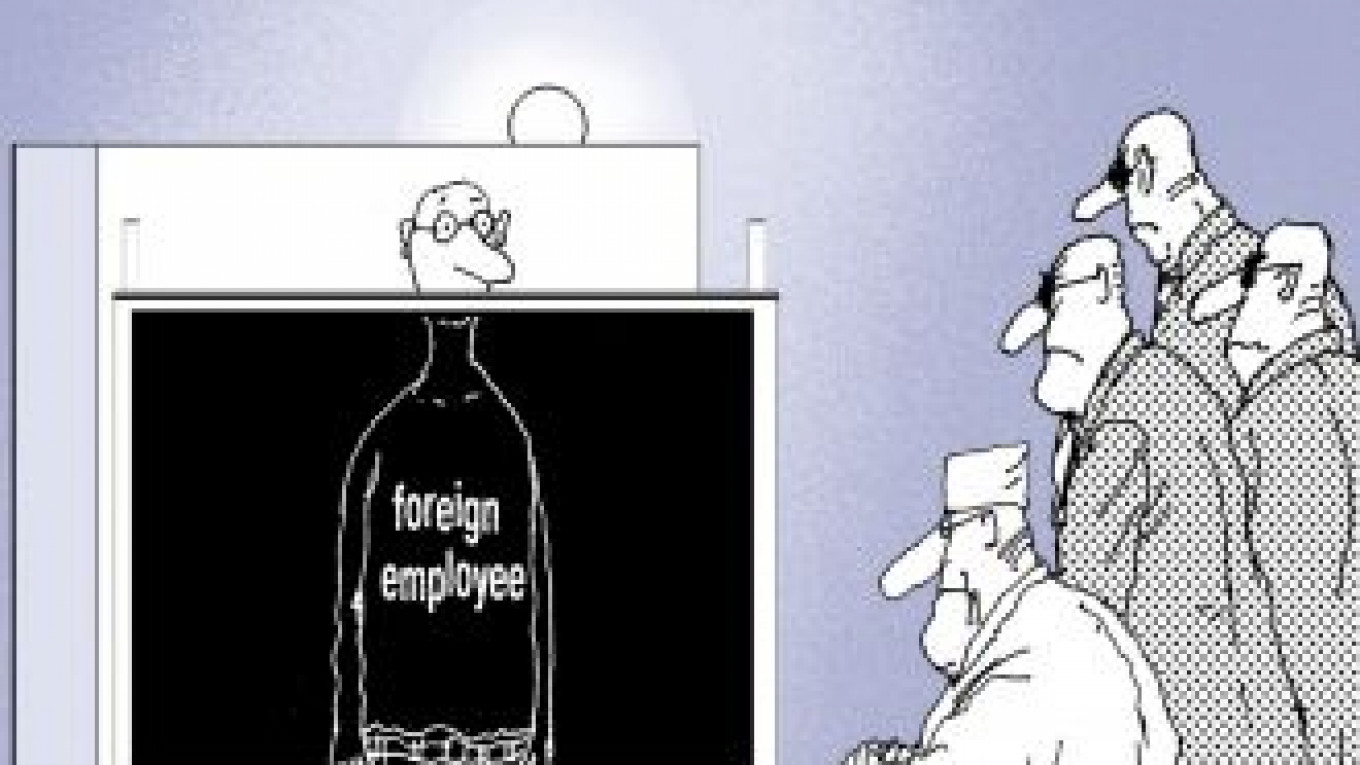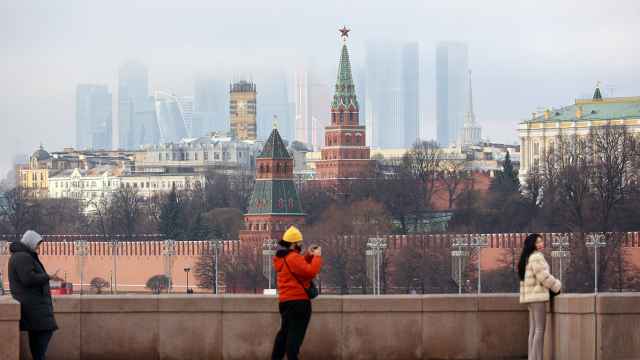Foreign business executives who wince at perplexing laws and notoriously slow, complicated bureaucracy have reason to rejoice. The government is accomplishing the seemingly impossible by preparing to overturn a draconian law on registration rules for foreigners in just a month — backing up its words with levelheaded action that show it values foreigners’ contribution to the economy.
What compelled the authorities to introduce the law requiring landlords to register foreign tenants every time they take trips abroad is a mystery. Perhaps backers of the legislation asked someone from the Russian Union of Industrialists and Entrepreneurs, the big business lobby, whether it made sense to move the registration burden from employers to the foreign employees — and the well-intentioned but misguided response was, “Why not? The change will make life easier for companies.”
What we do know is that no one consulted foreign business lobbies like the Association of European Businesses or the American Chamber of Commerce, which would have advised against having foreigners register directly with landlords. A similar rule in the early 2000s proved a nightmare for foreign employees, who had to round up necessary — and often unnecessary — documents demanded by the registration authorities and grapple with widespread discrimination from landlords unwilling to rent to them because of the paperwork. (The practicality of the registration rule itself is questionable — a throwback to the KGB mentality of trying to track everyone.)
Foreign business lobbies appealed to the government on Feb. 17, just two days after the new registration law came into effect. With lightening speed that stunned the business community, the State Duma approved legislation rolling back the law in a first reading just eight days later, on Feb. 25, and then in the final two readings on March 11. The Federation Council passed the bill on Wednesday, and it is now on President Dmitry Medvedev’s desk waiting to be signed into law.
In one fell swoop, the authorities have proved that they can improve laws and streamline bureaucracy to promote the country’s investment climate. Just as important, they have shown a readiness and ability to listen to sound advice.
In this spirit, we would like to suggest the repeal of three other regulations that stymie foreign business.
It’s high time that the government rescind a ridiculous rule requiring foreigners to pass medical tests for HIV, chlamydia, chancre, tuberculosis, syphilis and leprosy in order to work in Russia. The HIV test is a throwback to the 1990s, while the other five diseases were added in July 2005 — proving a major headache for those who actually take the tests and a joke for those who obtain clean-bill-of-health papers for a fee. The availability of purchased test results and the fact that short-term visitors are not required to take the tests at all discredit the notion that the regulations are intended to protect the country from imported diseases.
While Medvedev continues to talk about attracting more foreign expertise, his government has built a new barrier for foreigners. Tariffs on private household goods, introduced by the customs union with Belarus and Kazakhstan last July, regularly add a $10,000 to $30,000 premium to the cost of moving to Russia. Not only does this make permanent staff prohibitively expensive for small businesses, it also delivers a disastrous welcome message. “You start working here with a very negative attitude,” as one foreign correspondent put it.
Another baffling rule requires foreign business associations to report their every speaker and expenditure to the Justice Ministry. The rule is part of a tough 2005 law on nongovernmental organizations that was rammed through the State Duma by a Kremlin that was worried about a popular uprising similar to those that toppled entrenched governments in Ukraine in 2004 and Georgia in 2003. Business associations ended up being lumped together with the pro-democracy NGOs that bothered the authorities.
While the hassles for pro-democracy organizations are bad enough, in the case of foreign business associations the government is actually acting against its own professed goals of attracting significantly more foreign investment. The piles of extra paperwork required by the NGO law might be a manageable nuisance for large business associations, but for those with fewer staff, it is a major barrier to doing business here.
The only threat that the Kremlin faces from the foreign business lobby is an economic one: Associations won’t have time to adequately promote business because they are mired in red tape. Who, then, will save foreign employees from the next perplexing piece of legislation?
A Message from The Moscow Times:
Dear readers,
We are facing unprecedented challenges. Russia's Prosecutor General's Office has designated The Moscow Times as an "undesirable" organization, criminalizing our work and putting our staff at risk of prosecution. This follows our earlier unjust labeling as a "foreign agent."
These actions are direct attempts to silence independent journalism in Russia. The authorities claim our work "discredits the decisions of the Russian leadership." We see things differently: we strive to provide accurate, unbiased reporting on Russia.
We, the journalists of The Moscow Times, refuse to be silenced. But to continue our work, we need your help.
Your support, no matter how small, makes a world of difference. If you can, please support us monthly starting from just $2. It's quick to set up, and every contribution makes a significant impact.
By supporting The Moscow Times, you're defending open, independent journalism in the face of repression. Thank you for standing with us.
Remind me later.






